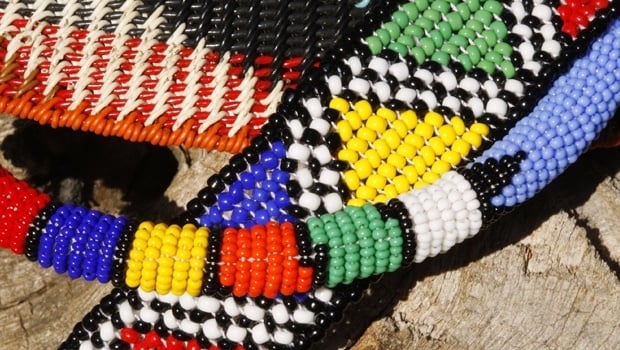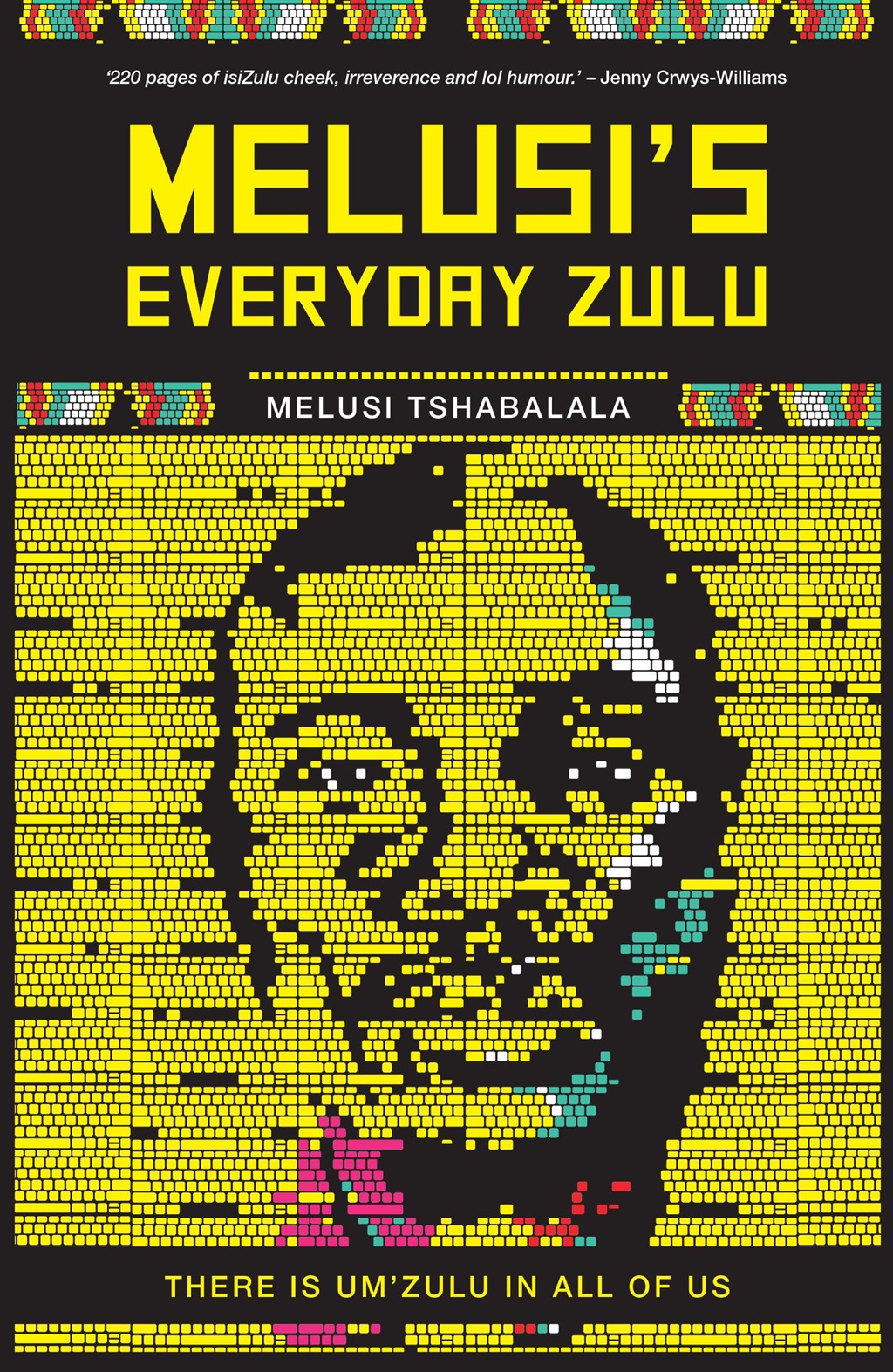
Back in my high school years, I took up isiXhosa as a third language. It was hard (my Xhosa-speaking friends had a field day with me, but always willingly and VERY patiently helped me with my pronunciations), but it was also fun, rewarding and so challenging.
Ultimately I gave it up as I had to choose between continuing my lessons and a subject that I thought (at the time) I would need more. Years later and to this day, regret the decision but am definitely making plans to take lessons again.
When I first discovered Melusi’s Everyday Zulu page on Facebook, I was reminded once again of the joy of learning a new language – not just that, but the joy of learning a language birthed on our soil.
Of course it’s wonderful learning international languages like French, Spanish or Italian, but I do think that those of us who don’t speak any of the African languages are missing out on the value, nuances and importance of learning how to speak to the heart and soul of the majority of South Africa.
I remember back when I interviewed Thandeka Gqubule about her book on Thuli Madonsela and she explained the meaning behind the term Makhadzi to me. I was struck then by the notion about how intertwined African languages, storytelling and folklore are.
When I started following Melusi Tshabalala’s page, I was immediately delighted by his tongue-in-cheek approach. Not only does he post words and includes pronunciations of them, but he also gives us a detailed look into the various ways and intentions behind how to use them.
His razor-sharp wit provides us with keen insights about the socio and political landscape of South Africa – from everyday life to commentary on racism and prejudice, Melusi’s lessons are at once an educational experience and a reminder for us to laugh at ourselves while connecting with our fellow South Africans.
READ MORE: Our pick of all the incredible SA authors you should be reading right now
Read an excerpt below and scroll to the bottom to purchase a copy of this marvellous book:
ISIKHOKHO
If you’ve ever washed a pot in which pap or mielie rice (what’s mielie rice? you ask) has been cooked, you’ve had to deal with isikhokho. Man, it’s a pain.
Isikhokho is the hardened crust of pap or mielie rice that sticks to the bottom of the pot and simply won’t come off. If you’re using an old Hart-type pot with dents at the bottom, the job of removing isikhokho becomes even harder because bits of the crust get stuck in the nooks and crannies.
You’ll find yourself chiselling away with a spoon to the incessant rhythm of kho, kho, kho, kho while sweat runs down your face.
Dealing with isikhokho is no way to go through life. Obviously, some people have never had to wash their own pots, so they have no idea what I am talking about.
But trust me, isikhokho is tough and unyielding. I’ve seen it bring grown women and men to the verge of tears.
So, the next time you see your maid looking teary-eyed, it’s not because she’s so grateful she has you as her wonderful employer.
No, she’s just been in an epic battle with isikhokho and most probably imagining it’s you she’s gouging with that spoon. Just kidding, your maid does not want to stab you to death with a kitchen utensil. (Or does she?)
Isikhokho is respected and feared in equal measure. That is how it became part of the everyday black South African lexicon outside the kitchen. You see, s’khokho, shorthand for isikhokho, is a term that also acknowledges an individual’s awesomeness.
Our country is gifted in the s’khokho department. I would like to honour South Africa’s biggest s’khokhos, people whose awesomeness cannot be messed with, just like the s’khokho stuck to the bottom of the pot.
WATCH: An example of Melusi's Everyday Zulu posts
If we had S’khokho Awards to honour the amazing women, men and children of this land, my three nominees for the country’s S’khokho of All Time would be:
My mother. She is is’khokho because she raised two boys and put them through school on her earnings as a domestic worker.
Countless other parents also continue to beat seemingly insurmountable odds to build solid futures for their children; they are also izikhokho (plural). And no, my mother has never stabbed any of her employers with a spoon. She wouldn’t hurt a fly, even though she used to be quick with the belt.
Nelson Mandela. We know why he’s is’khokho.
The average South African. We are izikhokho (plural) because of our resilience, activism and undying spirit of optimism in the face of crippling poverty, unemployment, crime, corruption, violence, and the beast of structural racism. I salute you, zikhokho.
We are still hopeful that Mr Cyril Ramaphosa will be the s’khokho that helps get the ANC and, ultimately, the country, back on a path towards prosperity for all.
PS: Soaking the pot makes it easier to deal with isikhokho.
READ MORE: I married a white woman and many call me a traitor
INKOMO
Inkomo is a cow. The plural of inkomo is izinkomo.
The cow is very important in Zulu culture, because it’s a source of food, its hide can be used for various purposes, and it’s a form of currency. To this day, there are actual instances where the value of some things is calculated in izinkomo. You then have to convert it into rands.
Inkomo is also the word for a person (or group of people) who is (or are) particularly bad at something. In the beginning, it just referred to people who sucked at soccer because they were as useful as a cow on the soccer field. Bafana Bafana and Orlando Pirates are the archetypes of this kind of soccer player.
However, there are also several other applications of this meaning of the word.
For instance, you can be inkomo at running a state-owned enterprise. So, so many of them. Inkomo at being the head of the NPA: we all know him.
Inkomo at being president: you know who.
Inkomo at not being a racist prick: you know who you are.
Inkomo at reconciliation: you know who you are.
Inkomo at not having smallanyana skeletons: Bathabile and the ANC NEC.
You can be inkomo at fatherhood. Guys, this thing is hard, but we must keep working at it.
Inkomo at marriage: eish.
Inkomo at peeing into the toilet bowl: some men.
Inkomo at fashion: me.
Inkomo at respecting traffic lights: inner city pedestrians.
Inkomo at rain: Cape Town clouds.
Inkomo at driving: taxi drivers.
Inkomo at honesty: politicians.
You can be inkomo at sleeping: insomniacs.
Inkomo at humility: rappers.
Inkomo at wiping your own ass: toddlers.
Government is full of izinkomo at service delivery.
Corporate South Africa is izinkomo at transformation.
You can be inkomo at anything – sex, dancing, your job, school, whatever – but you don’t have to remain one. Work at whatever it is you’re doing. Practise. Read up on it. Learn from those who are better at it than you.
But most importantly, you have to want to get better at it.
Want a copy of this delightful book? Purchase Melusi’s Everyday Zulu from Loot.co.za
Sign up to W24’s newsletters so you don't miss out on any of our hot stories and giveaways.




 Publications
Publications
 Partners
Partners















